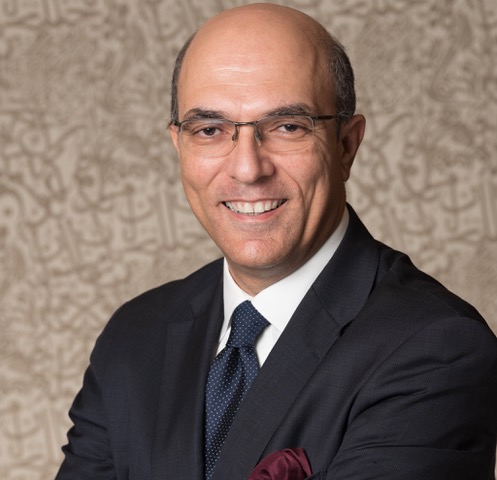
New semester, New Challenges: Generative AI in Education
The emergence of generative AI (GenAI) has forced educators across the world to rethink curricula, policies and principles both in and out of the classroom. “Generative AI brings many opportunities, but also a lot of challenges — especially in terms of academic integrity,” said Sherif Kamel ’88, ’90, ’13, dean of AUC’s School of Business.
As the new semester kicks off, Kamel has pondered how AI will affect teaching and learning, how it will support and challenge research, and how it will change the daily operations of business schools.
“This is a unique moment for business schools to lead the way in rethinking business and management education and explore what is needed to succeed in a fast, changing, innovative, constantly disruptive and interconnected global environment,” he writes in the most recent edition of the NileView.
He forecasts change across the board — from course assessment to faculty recruitment and retention.
“GenAI plug-ins could help create testing material and analyze student performance, identifying strengths and weaknesses and suggesting ways to improve,” he said. “This would support and optimize learning outcomes and motivate students.”
Kamel also noted that AI skills will soon become a “must” across disciplines, including teaching. “Moving forward, universities and higher education institutions, including business schools, will opt to recruit and retain faculty who can embrace technologies such as GenAI and have the knowledge and experience to use them in their teaching methods and research approaches,” he said.
Teaching faculty, students and staff how to effectively and responsibly use the tools of tomorrow is of utmost importance, according to Kamel. “A lot of work needs to be done that relates to security, privacy and academic integrity,” he said. “Like every other emerging innovative technology, there are ethical and unethical ways to use AI, and the business leaders of tomorrow need to learn this as students today.”
Looking back, Kamel points out that the AI revolution has been a long time coming. “This has been gradually happening throughout the last 80 years,” he explained. “Many simple tasks we used to do are now done faster and more efficiently by technology.”
Kamel stresses that machines will not replace humans — at least not in the foreseeable future. However, he does believe that the time we spend on certain activities, as well as the nature of work, will absolutely change.
"I've always said that humans and human capital are society's most important assets,” he said. “People will keep on doing what they do best, which is the thought process, judgment, vision and strategy, versus machines, which will help with data projections and advanced analysis — and this can help us make better decisions.”
With OpenAI’s latest text-generating model GPT-4 released only last March, Kamel believes that we are just beginning to scratch the surface of AI’s potential, placing importance upon upskilling and reskilling to stay current and competitive in “a more advanced, accelerated, technology-driven environment,” he said. “Degrees will still be important, but they must be complemented with lifelong learning through certification, professional development and training, lifelong learning is no longer an option.”
Innovation for Business Schools
Kamel has been appointed vice chair and chair-elect of the board of directors of the Association to Advance Collegiate Schools of Business (AACSB), the oldest global accrediting body for business schools with the largest network of schools, educators, learners and businesses worldwide.
In his new role, Kamel will lend his years of expertise in advocating for innovation, engagement and impact in business education. He will also serve as the board’s chair for the 2024-2025 academic year, and is now chairing the board’s Innovation Committee.

AUC’s School of Business joined AACSB in 2001 and was first accredited by the association in 2006. “Since then, we’ve been active members — not just of the network as an accredited school, but many of our staff and faculty are active in brainstorming strategy discussions, projects as well as regional and global conferences,” said Kamel.
Striving to keep business and management education current amid an ever-changing landscape is one of AACSB’s cornerstones, Kamel explained, highlighting digital transformation and AI as two major trends at the forefront of discussion. “Additionally, the United Nations Sustainable Development Goals (SDGs) and environmental, social and governance (ESG) issues have become an integral part of the curriculum and activities organized and offered by business schools,” he added.
Business schools should practice what they preach and always strive to innovate and adapt to developments taking place in different global businesses, industries and markets to remain relevant and impactful and shape the future leaders of tomorrow who can make a positive difference to society.
